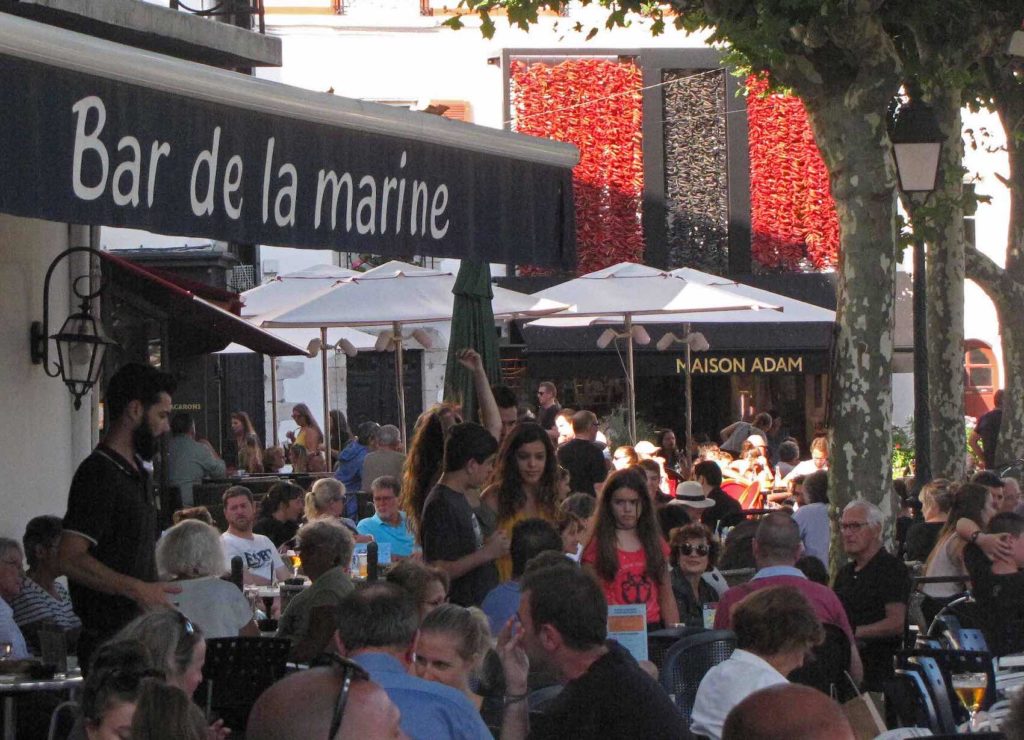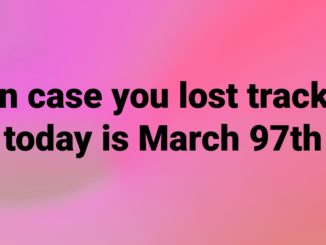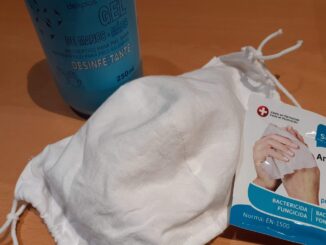So close, just 20kms or 15 minutes by car from Donosti….and yet so far.
Iparralde.
You won’t find it on any official map but all Basques know what and where it is: The “North Part” of The Basque Country. It lies in the south west of what the rest of the world calls France, extending some 40 kms up a glorious coastline to Baiona (Bayonne) and 100kms inland, stretching into the peaks of The Pyrenees.

In normal times, the hard border between the North Part, Iparralde, and the South Part of The Basque Country inside Spain, Hegoalde, where Donosti lies, is just a memory for a few of the more elderly (I include myself!), as the border crossing between the two countries was effectively abolished in 1995. Crossing it now in Irun or other places is normally just a drive or a saunter across a river.
Not today though in a world ruled by the fear of COVID-19.
It is now more difficult to cross the border than at any time since The Spanish Civil War. The hordes from the north no longer plunder the rundown quarter of the border city of Irún for (much) cheaper Pernod, tobacco and fuel–let’s not mention the brothels–because only Spanish citizens are allowed through.
Even if my work, handicraft sessions and gym were still open I’d be rebuffed at the border and sent back with a fine for my troubles. My wife, who is the archetypal Basque with eight (tongue-tying) Basque surnames, was almost turned away yesterday. Equally, the Southern Folk are no longer seen–and especially heard with their comparatively stentorian timbre–here crowding the promenades or the supermarkets, hunting out the superior dairy products and foie gras to be had in Iparralde.
Now there is a newly revived fracture running down this “border,” but despite the brotherly love between the two parts and the common language of Euskera–which is spoken in these parts with a pronounced French accent but with many terms unintelligible to the Southern Folk–there is always a mental distance between the two at the best of times. “Franchutes” the Southern Folk will say, meaning “Frogs”. This happened even in Donosti, which was growing fat on the Northern day-trippers flooding in to do the Pintxo Tour (Basque tapas) in The Old Part, especially since they have the habit of piling ten pintxos on a plate when the local Donosti custom is just one with a wine and then quickly off to the next bar.
The Donosti Town Hall will also be missing the income from the municipal tow truck raking in €150 per anarchically parked Northern car. My French number plate, despite the Basque Flag proudly emblazoned upon it, elicits many more hoots of protest in Donosti than when I drove a Southern registered car.
This is also despite San Sebastian/Donosti being the most French of all the cities in Spain. Alight from the train and you are on Paseo de Francia with its ornate and opulent villas and Wallace fountains, identical to those of Paris. Cross over the river on the Maria Cristina Bridge and you’ll see four imposing obelisks at either end, copies of the Alexander III bridge of Paris.
Donosti is internationally known today for its remarkably high gastronomic standard, the Nueva Cocina Vasca/Basque Nouvelle Cuisine, a movement first championed by Juan Mari Arzak, trained by his muse Bocuse.
However, a thinly veiled inferiority complex of the Southern Folk towards their Northern kin is still evident. And unfortunately the Northern Folk all too often demonstrate a corresponding air of supposed natural superiority in their dealings Down South. Love, hate. Family bonds are strong and sometimes visceral.
The two Lands are likewise far apart in their treatment of The Great Lockdown too. Contrary to what many foreigners think, it is actually the Southern Folk, the Spanish Basques, who are the strictest with their regulations and fines. For the last five weeks not even children have been let out for a spot of exercise from what are often fairly small flats, with a balcony at best for some fresh air. Fines start at €601. We personally know one pensioner who was left in tears because he walked a few minutes in the arches below his flat – the police make no exceptions.
Up north on the other hand at first all the police did was a bit of verbal finger wagging. We went for a walk along the coastal path near Donibane Lohitzune/St.Jean de Luz one day. A couple of police cars drove past and each time an officer gently admonished us through an open window, “You can’t walk here”. And then drove on.
However, after a few weeks and seeing how “recalcitrant” the French were to give up socialising, things are now somewhat stricter. You can go for a family walk for an hour every day, just so long as you carry a paper where you promise on your “honour” you left the house at a certain time. Bicycle rides are forbidden but that doesn’t seem to deter many in my village. Likewise strolls along the bike paths. The strict proscription on collective team sport practice would not appear to apply the six or eight “rugby-men” who gather for hours almost every day on the pitch at the bottom of my garden to loudly perfect their technique.
Visiting the family is also a no-no but my neighbours don’t have much truck with that. The same piece of paper, but with a tick in a different box, allows us out for essential shopping. In my case that often means hot baguette and the occasional sublime Itxassou cherry Gateau Basque from our local baker, who continues with the same timetable, just a transparent plastic curtain as separation between customers and servers as a reminder of the weird times we are living in. The supermarkets are full of stock – even toilet paper! – and the queues minimal.
The main Paris-Madrid motorway runs not too far from our house and the lorries still rumble along but car traffic is virtually nil. The resulting tranquillity has, as in many places, led to an emergence of previously unseen animals. Since we went into hiding I have spotted in our garden nuthatch, greenfinch, dunnock and today a redstart. My wife almost caused me to lose control of the car as we entered a roundabout not 200 metres from our house – usually a one minute wait to get onto but now deserted – as she unexpectedly let out a loud cry, “A marmot! I’ve just seen a marmot, on the kerb”. And blow me if it wasn’t still there a few days later…life does feel very Groundhog Day nowadays.
When all of this is finally over I imagine the Northern and Southern Folk will get together again, as always with family reunions it will be a bit “sweet and sour”.
But they will be happy to see each other again.



A very interesting and enjoyable read… So fun to see the differences between north and south spelt out this way… We all recognise them (although i do propose that a Hegoalde number plate gets beeped at more in Iparralde than vica versa (although never tried it?) Thanks
Thanks Georgina. For many years I was also beeped at in Iparralde with a Spanish registered car – usually for the “cheek” of overtaking in a legal place – so I agree with you there..
Really enjoyed reading this, Andrew. And I even learned a new word. You’ll have to guess which. Greetings from down the road a stretch.
I can guess which word–I Had to look it up too :).
Many thanks Carol. Hmm, let me see, it wouldn’t be “stentorian” by any chance, would it?? BTW say hi to Gabriella from me, we lost touch with each other many aeons ago.
An amusing and sharp insight into the other side of the border Andy.
Thanks Krista!!
So nice to hear the perspective of one of the Northern Folk. Nicely done. And I , for one, will be very glad when we can cross that border again into Iparralde.
I am personally REALLY looking forward to buying some proper olives again.. I am beginning to drool like Homer Simpson at the very thought.